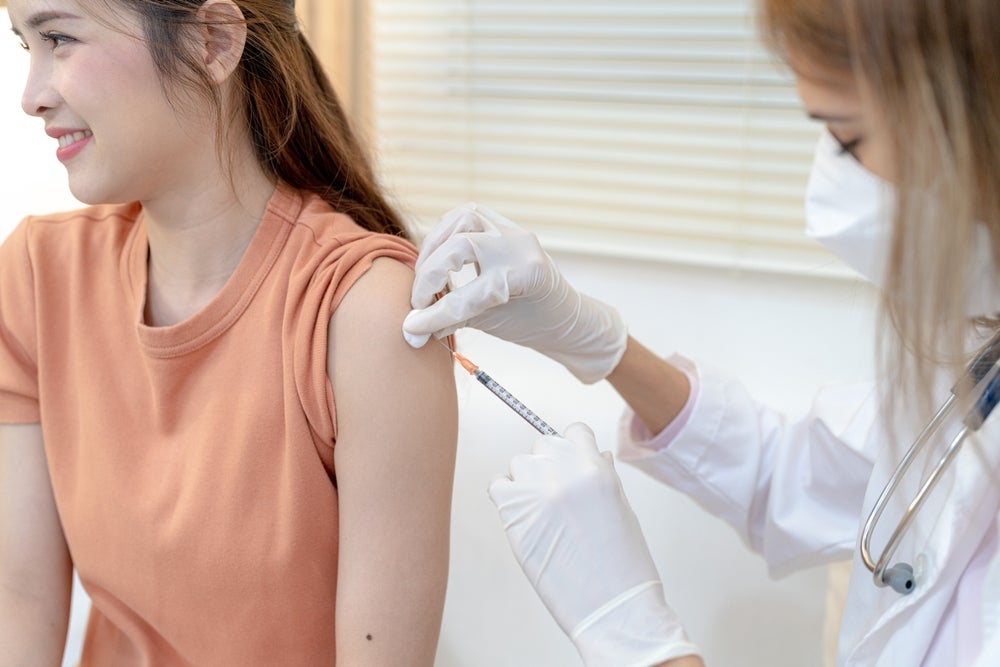
The UK’s National Health Service (NHS) has pledged to eliminate cervical cancer by 2040, outlining how increasing rates of human papillomavirus (HPV) vaccination and screening will help it reach its goal.
The pledge was announced by NHS chief executive Amanda Pritchard at the NHS Providers’ annual conference held from 14 to 15 November.

Discover B2B Marketing That Performs
Combine business intelligence and editorial excellence to reach engaged professionals across 36 leading media platforms.
The NHS said it will improve vaccine accessibility through targeted outreach and offering the jabs in more convenient settings such as libraries and community centres, according to a 15 November press release.
The NHS added that giving local health teams more flexibility in locating vaccine services, in addition to revamping the NHS App to improve access to online vaccine appointments, will help its aim to ensure as many people as possible are being vaccinated against HPV.
To reach cervical cancer elimination, there will need to be an incidence of lower than four per 100,000 women, as per the World Health Organization.
Currently, there are around 2,700 new cases of cervical cancer per year in England, based on the press release. According to Cancer Research UK, cervical cancer accounts for 2% of all new cancer cases in women.

US Tariffs are shifting - will you react or anticipate?
Don’t let policy changes catch you off guard. Stay proactive with real-time data and expert analysis.
By GlobalDataIn 99% of cases, cervical cancer is caused by the HPV virus, a common group of viruses transmitted through sexual and skin-to-skin contact. It is estimated around 80% of people will be infected with HPV at some point in their life.
The NHS originally introduced GSK’s bivalent HPV vaccine Cervarix to teenage girls in 2008, with research showing the vaccination programme has led to significant reductions in cervical cancer rates across multiple age groups.
Currently, the NHS offers MSD’s Gardasil 9 to both boys and girls aged 12 to 13 years and to those from higher-risk groups. Gardasil 9 protects against nine types of HPV. The Gardasil 9 regimen in England halved from two doses to one in September 2023.
Alongside the vaccination drive, the NHS also said it is inviting more patients for cervical screening. Last year, over five million people aged 25 to 64 years were invited for screening, with 3.5 million of those going through with the test.
Pritchard said: “Vaccination and screening are the key tools which mean we are one step closer to [eliminating cervical cancer] and the NHS is already making it easier than ever before for people to protect themselves and their families – whether it’s through community outreach in areas of lower uptake or expanding the NHS app so that everyone has their vaccine history and booking options in the palm of their hand.”
Cancer Research UK’s head of health and patient information Dr Julie Sharp said: “To ensure everyone has equal access to these life-saving programmes, there must be targeted action to increase HPV vaccination coverage and reduce barriers to cervical screening.
“This ambition will only be possible if the vaccination and screening programmes are backed by sufficient resources and modern IT infrastructure.”


